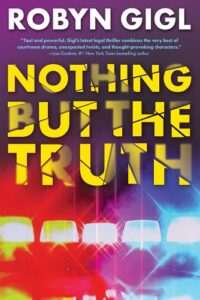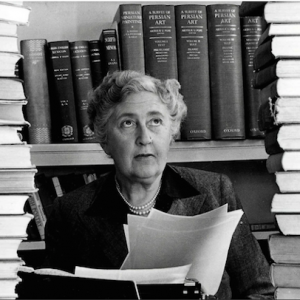“Every novel that’s worth its salt is about something other than the story; something other than the plot.” — Walter Mosley
“Be curious, not judgmental” — as quoted by Ted Lasso
When I came out as a transgender woman and transitioned in 2009, I was the managing partner of a 19-lawyer law firm. At that time, most people didn’t even understand what it meant to be transgender. Even today, a Pew Research Center study found that more than 55% of Americans don’t personally know someone who is transgender, and about 75% don’t know anyone who is non-binary. This lack of familiarity may come from the fact that, according to the same study, only about 1.6% of the population is transgender or nonbinary. Yet, if you listen to certain commentators, politicians, or even a well-known author, transgender and nonbinary folks are charlatans and the source of all manner of societal ills. Which raises the question: why is there so much vitriol against such a small segment of the population?
I’m not a psychologist or sociologist, but I believe some of this hostility is political theater designed to gin up those who oppose LGBTQ+ rights. But another part, probably the largest part, stems from a fear or distrust of a segment of the population that many people simply don’t know or understand—the proverbial fear of the other. And therein lies one of the goals of my novels: to introduce this latter group of readers to a transgender character and, through that character, help folks to understand what it means to be transgender and the issues faced by the transgender community. While I’m not the first author to take this approach, focusing on the challenges, pains, and joys of transgender individuals is a relatively recent development.
I was born in the 1950s, a time when conversations about being transgender were nonexistent. Growing up, I thought I was the only person in the world who felt like I did. With no role models to look to, I tried turning to books for representation. Unfortunately, I found none. I was already an adult when I read the first sympathetic portrayal of a trans character in The World According to Garp by John Irving. Unfortunately, aside from Garp and, later, Trans-Sister Radio by Chris Bohjalian, the historical treatment of trans characters in literature and film has been problematic. For years trans people were marginalized as nothing more than the punch line for bad jokes, or the target of ridicule and disdain. This was especially true in the crime/mystery genre, where trans characters often appeared as victims or, worse, as psychopaths, reduced to one-dimensional stereotypes rather than fully realized human beings. I suspect that one of the main reasons for the way these characters were portrayed was because they were all written by cisgender authors, who not only did not have the lived experience of being trans, but also did not use sensitivity readers to ensure that their version of a trans character was an accurate one.
Change began to occur in the crime genre when Renee James and Dharma Kelleher created strong trans protagonists who reflected their authors’ experiences as trans women. Like Renee and Dharma, my novels are shaped by my lived experience. Having embarked on my writing career later in life, I embraced the adage: write what you know. Drawing on over 40 years as a practicing attorney and my identity as an out and proud transgender woman, I created what I believe is a unique character in the crime fiction genre—transgender criminal defense attorney Erin McCabe.
Erin is the protagonist in my four published novels—By Way of Sorrow (2021), Survivor’s Guilt (2022), Remain Silent (2023), and Nothing but the Truth (2024). All are legal thrillers aimed at fans of the genre. But my intent in writing them was to do more than entertain. As Mosley suggested, I want each of my novels to be about more than just the plot. My goal was to bridge the knowledge gap for cisgender individuals who may not know anyone who is transgender and to allow Erin’s journey to humanize transgender individuals, breaking down barriers that often stem from ignorance or fear and allowing the reader to reconsider their preconceived notions and attitudes towards transgender individuals. Or as Ted Lasso might say, help them become more curious and less judgmental.
So, turning to the topic at hand—has Erin been successful in changing real world attitudes towards transgender people? Lacking the kind of empirical data an academic would rely on, all I have is anecdotal evidence based on emails and online reader reviews from Amazon and Goodreads. However, based on that evidence, the answer is yes. I can’t say how many readers have come to a better understanding of trans people from reading my novels, but again, judging from the comments and reviews I’ve received, Erin has had a positive impact on many readers. Here’s a sampling of some responses that lead me to believe that Erin has helped.
—“I’m really glad I had a chance to read this book. I felt that it opened my eyes more so to the struggles that transgender folks deal with on daily and even lifetime basis.”
—“I am a . . . straight white male, married with two adult children. . .. I knew virtually nothing about transgender issues but your books very much heightened my awareness.”
—“I know nothing about transgender persons nor do I know any. This book was an eye-opener with revelations and overtones that give a completely different aspect to the basic stories in this genre. I fell in love with the character of Erin McCabe . . ..”
—“I loved how gently and respectfully the author provided clarity around appropriate language to use when talking about transgender people and a window into the attitudes and struggles inherent in society and especially the legal system.”
—“I’ve gained knowledge and greater understanding of and empathy for transgender people. Please do continue to write.”
—“I truly appreciate you helping me better understand the transgender community.”
Of course, I must acknowledge that I didn’t have a positive impact on all readers, especially those that didn’t get past page 3.
—“TRANS PROTAGONIST? REALLY? If you are offended with the idea of people THINKING they can change their sex, then don’t buy this book. Thankfully, I checked it out of the library. By page 3, when the character’s sex change is discussed, I stopped reading it.”
—“Not a novel. A social/political statement.”
—“You are male or female. DONE.”
Successful or not, my approach in trying to change attitudes has been to give readers what they want in a legal thriller—a twisty, character-driven, page turner set in and around an unfolding criminal case. But in doing that, I also wanted to create a character who could challenge and deconstruct some of the harmful stereotypes surrounding transgender people, in particular, transgender women. Erin, as both a successful lawyer and a trans woman, is intelligent, resourceful, funny, and occasionally plagued by self-doubt—in other words, she’s human. I wanted Erin’s struggles, successes, sorrows and joys to allow the reader to see transgender lives as rich, complex, and just as deserving of attention as any other, which in turn allows readers to see transgender individuals as a normal part of society rather than as outliers. It’s my hope that the richness and complexity of Erin’s life helps to humanize transgender individuals.
I’m sure there are many authors who don’t necessarily agree that a novel, particularly one in the mystery/crime genre, needs to do more than entertain. And while that may be a valid position to take, for me, because there are so few authors, particularly in this genre, who can write a trans character from lived experience, I felt it was incumbent on me to try to present and humanize that experience so that others will at least experience it vicariously.
In that vein, I feel I have learned so much from reading diverse authors whose lived experiences are different from my own. There are so many authors to whom I am indebted for writing books that have helped me to see the world from their characters’ perspectives. I’m thinking of some of the amazing authors who are part of Crime Writers of Color. Also, since not all LGBTQ+ people have the same lived experiences, there are some wonderful Queer Crime Writers who have helped me see different perspectives within the Queer community. All of these authors have written novels that have both entertained and educated me on important issues.
Obviously, I hope everyone who reads my books will find them to be page turning legal thrillers. But for those readers who come to my books unfamiliar with the issues transgender people face, I do hope they will come to understand that no one chooses to be transgender or nonbinary, it’s not a lifestyle choice. We’re just like everyone else; each in our own way trying to live our best lives. To that end, if my books can have a positive impact on readers’ perceptions of transgender people, I will consider them a success.
***


















